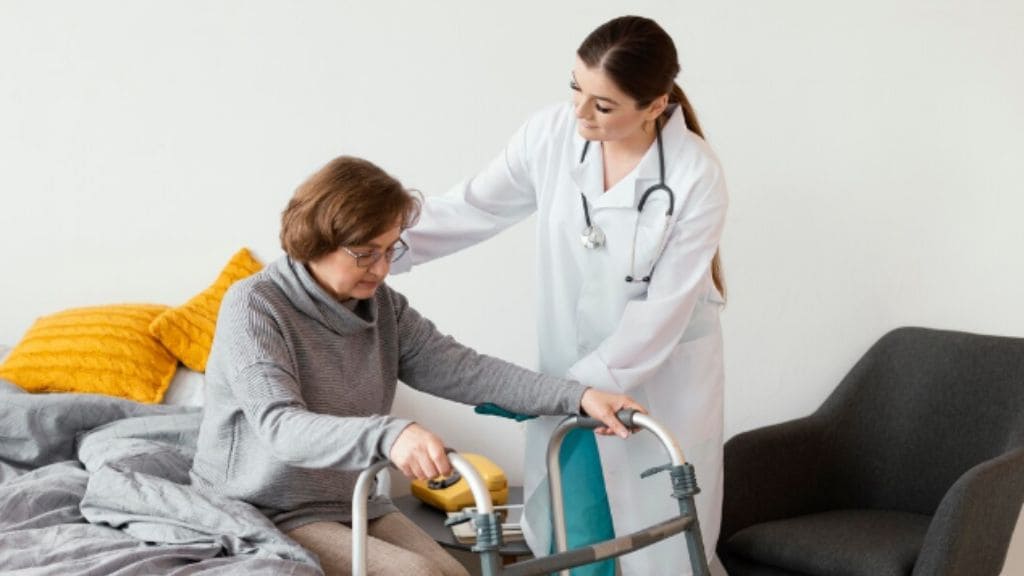
Caregivers play an important role in ensuring health, safety and emotional well -being for people who need help due to age, illness or disability. Whether you work professionally or care for a dear, it is important to understand the key tasks of a caregiver. This article outlines the 5 best responsibilities of caregivers, provides insight into daily tasks and answers the most common questions about the caregiver’s duties in the United States.
What Is a Caregiver?
A caregiver is a person who provides direct care and support to people who are unable to take care of themselves because of age, disability, injury or chronic illness. Caregivers can work in homes, assisted housing or hospitals, and can be family members or staff professionals.
Top 5 Responsibilities of Caregivers
- Help with activities in daily life (ADLs)
This includes helping customers:
- Bathing
- Dressing
- Eating
- Grooming
- Toileting
These functions are fundamental to people who have limited mobility or health problems.
Medication Management
- Remind your customers to take medication in time
- To provide medicines as prescribed (if qualified)
- Monitor side effects or changes in the condition
Meal Preparation and Nutrition Support
Proper nutrition is important for health. Caregivers can:
- Prepare balanced meals based on dietary needs
- Help with meals if necessary
- Monitor hunger and hydration
Companionship and Emotional Support
Insulation can damage mental health. Caregivers provide:
- Social interaction and conversation
- Emotional insurance
- Recreation activities (eg playing sports, go)
Light Housekeeping and Home Safety
Clean and safe environment helps prevent accidents. Duties include:
- Cleaning, washing and clearing of
- Ensure root -free walkways
- To look at dangers like loose carpets or bad lighting
Additional Caregiver Job Duties
In addition to the core responsibilities, caregiver job duties may include:
| Task | Description |
|---|---|
| Transportation | Driving to appointments, grocery store, etc. |
| Mobility Assistance | Helping with walking, transfers, or wheelchair use |
| Communication with Families | Providing updates on the client’s condition |
| Vital Sign Monitoring | Checking blood pressure, heart rate, temperature |
| Coordinating Medical Visits | Scheduling and attending doctor appointments |
Skills Every Caregiver Should Have
- Patience and compassion
- Time management
- Strong communication skills
- Attention to details
- Basic knowledge of first aid
Being a caregiver requires both heart and skill. Training is often available to help individuals develop the necessary competences.
Also Read This : Home Health Care in Daly City
Conclusion
Caregivers are the backbone of personal support for millions of people across the United States. Their work is demanding, but necessary. By understanding the most important duties of a caregiver, both families and professionals can ensure quality care that respects the dignity and needs of those they serve.
Frequently Asked Questions (FAQ)
1. What are the caregiver’s duties and responsibilities?
These include helping with daily activities, managing medicines, preparing meals, offering camaraderie and maintaining a clean, safe home environment.
2. What are the 5 responsibilities of caregivers?
● Personal care (ADL)
● Medical Reminder
● Food preparation
● Emotional support
● Household
3. Are carers who are eligible to travel to the United States? Is certification required?
It depends on the condition and type of care. Personal caregivers may not need certification, while home health helpers often need to be licensed.
4. What is the difference between a caregiver and a nurse?
Caregivers provide non-medical support, while nurses have a license to provide medical treatment and treatment.
5. Can payments be made to family members?
Yes, in many US states, family members can receive compensation through Medicaid or other programs to care.
